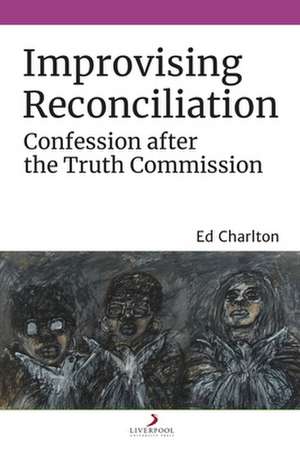Improvising Reconciliation – Confession after the Truth Commission
Autor Ed Charltonen Limba Engleză Paperback – 14 noi 2021
Preț: 364.96 lei
Nou
Puncte Express: 547
Preț estimativ în valută:
69.85€ • 72.36$ • 58.29£
69.85€ • 72.36$ • 58.29£
Carte tipărită la comandă
Livrare economică 22 martie-05 aprilie
Preluare comenzi: 021 569.72.76
Specificații
ISBN-13: 9781800349261
ISBN-10: 1800349262
Pagini: 256
Ilustrații: 12 Illustrations, black and white
Dimensiuni: 152 x 229 x 12 mm
Greutate: 0.31 kg
Editura: Liverpool University Press
ISBN-10: 1800349262
Pagini: 256
Ilustrații: 12 Illustrations, black and white
Dimensiuni: 152 x 229 x 12 mm
Greutate: 0.31 kg
Editura: Liverpool University Press
Descriere
And while this study surveys some of the many serious critiques levelled at the country's Truth and Reconciliation Commission (1996-2001), these misgivings help situate the plural, improvised approach to reconciliation that has arguably emerged from the margins of the cultural sphere in the years since.
